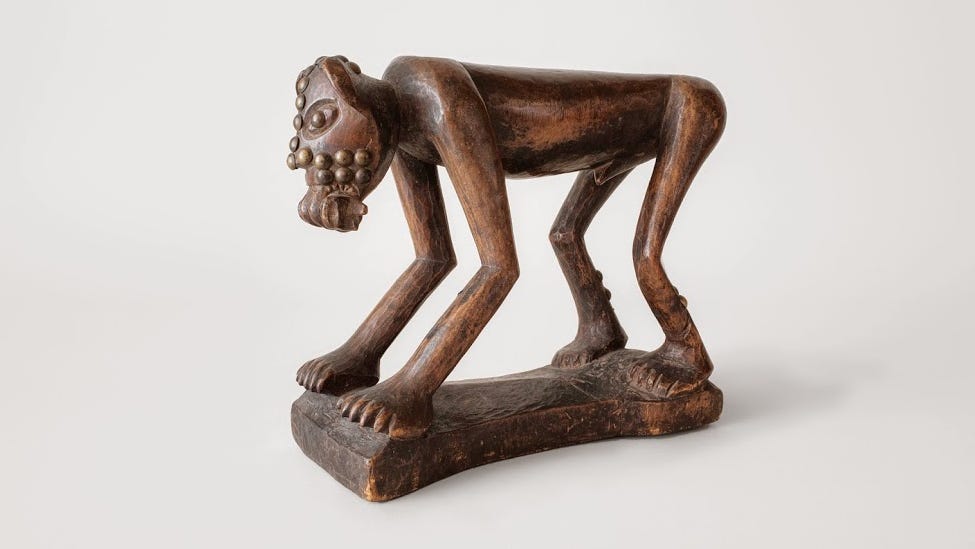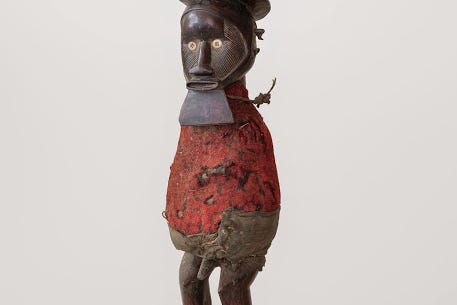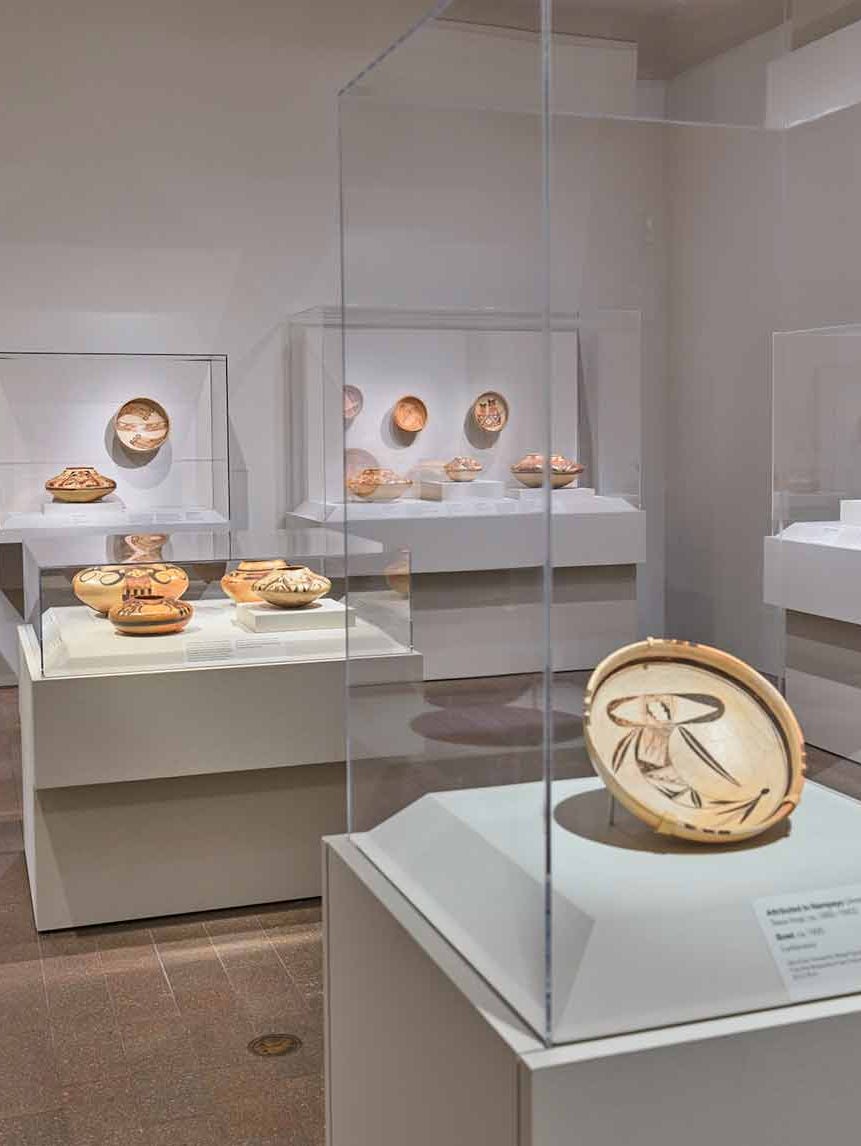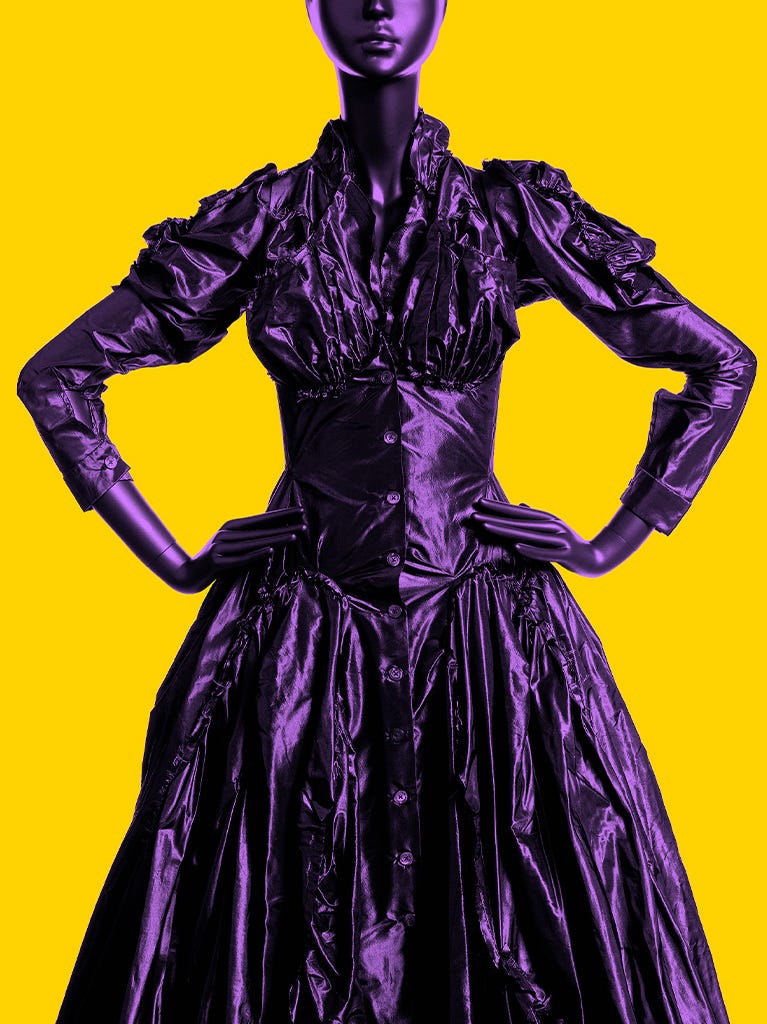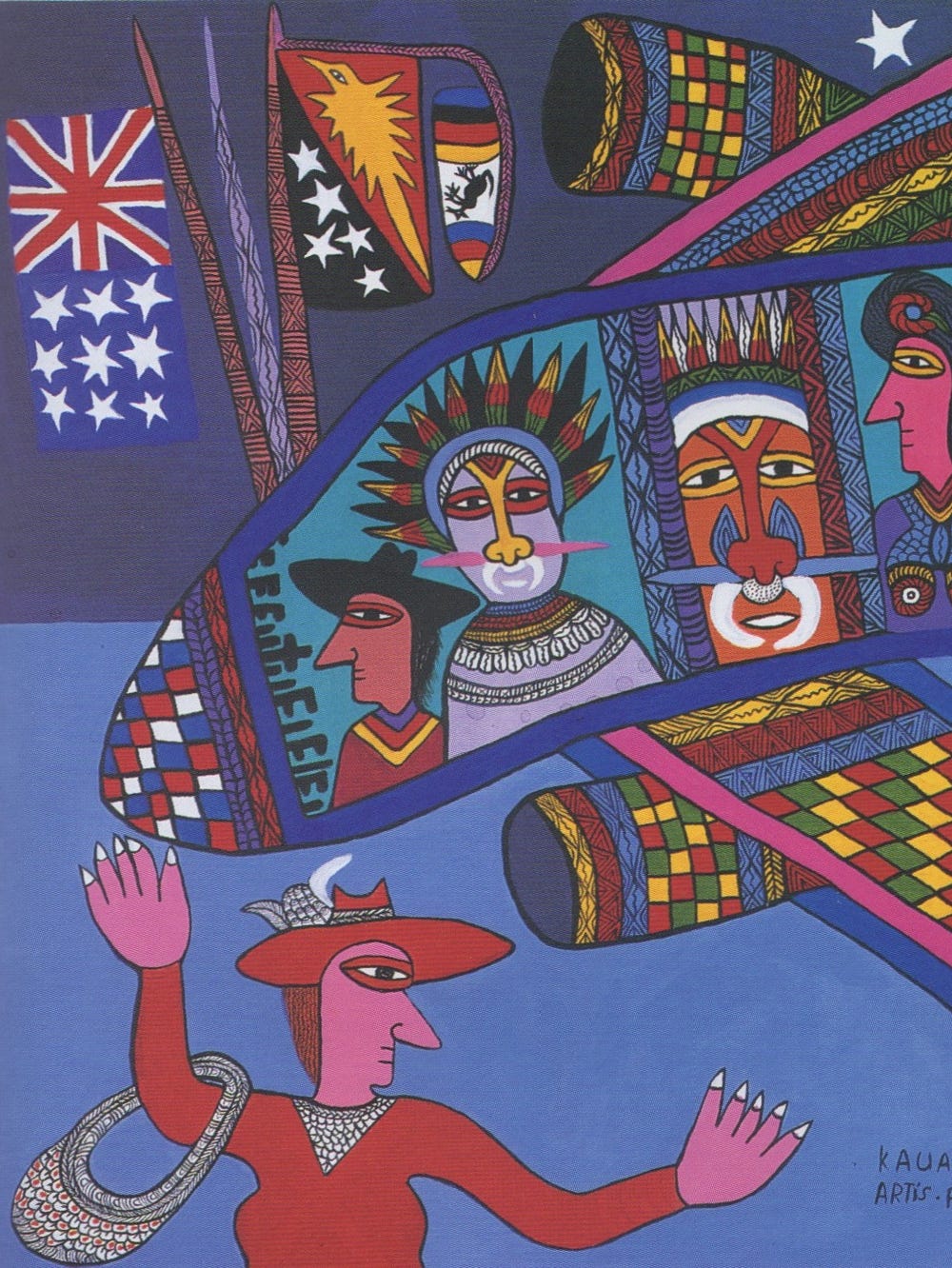Musaw (headrest) owned by an esteemed person, 19th – early 20th century. Democratic Republic of the Congo, Yaka. Wood, copper alloy, and pigment. Richard H. Scheller Collection. Photo © Robert A. Kato
Embodiments: Masterworks of African Figurative Sculpture
This selection of sculptures from sub-Saharan Africa pays homage to the figure in African art. Embodiments: Masterworks of African Figurative Sculpture features 120 pieces from the collection of Richard H. Scheller, composed of classic and iconic sculptures as well as more unusual examples that challenge commonly held assumptions about African art. The geographical breadth of the collection and the variations in its depictions of the human form will allow visitors to explore both the histories and the formal qualities of these works of art.
Approximately 110 cultural groups are represented by sculptures spanning several centuries and encompassing a broad range of styles, from realism to abstraction. In their original contexts, these objects represented ancestors, expressed community values, and served religious and ceremonial purposes. For example, Luluwa artists carved bwimpe (power figures) that expressed ideals of beauty as a moral virtue through their highly intricate coiffures and stylized scarification marks, and rituals associated with these sculptures offered protection to women and their children.
As works of art that were removed from their originating communities and entered the art market, the sculptures in this exhibition express value systems and cultural relationships both inside and outside Africa. Works such as the eyema byeri (or “the image of the ancestor”), from the Fang Ntumu of northern Gabon, were once placed atop reliquaries containing human remains. During the early 20th century, such sculptures circulated among European and American dealers and collectors whose interest in African art was spurred by a passion for modernism. The Scheller Collection eyema byeri was once owned by Paul Guillaume, a Parisian dealer and champion of modernist art who was also an advisor to the legendary Dr. Albert Barnes, founder of the Barnes Foundation.
Gallery
Sponsors
This exhibition is organized by the Fine Arts Museums of San Francisco.
President’s Circle
The catalogue is published with the assistance of the Andrew W. Mellon Foundation Endowment for Publications.
